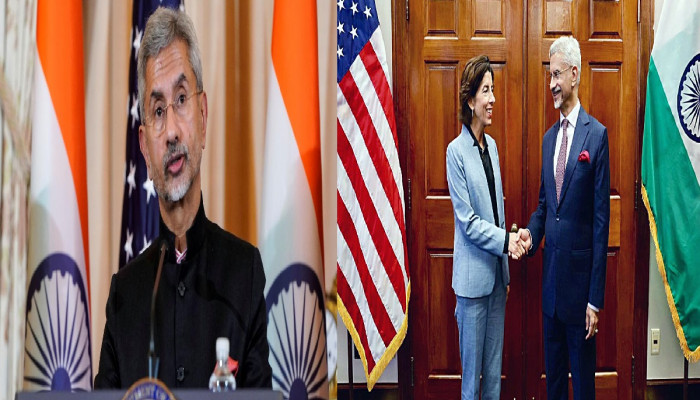Indo-China Ties: 'Border standoff will persist until China…, Jaishankar
- In Reports
- 04:22 PM, Oct 02, 2024
- Myind Staff
External Affairs Minister S. Jaishankar said on Tuesday that as long as there are military personnel stationed at the border on both sides, the ongoing standoff between China and India will continue. He also stated that in 2020, China broke the peace accord. He made this statement at a US Carnegie Endowment event. Since 2020, China and India have been at odds over territory as a result of the Chinese Army's incursions into several regions, including the Finger area near the Pangong Lake and the Galwan Valley.
“In terms of our relationship with China, I think it’s a long story, but the short version is that we have agreements on how to keep the border peaceful and tranquil, and those agreements were violated by China in 2020. And some of the…because we have forward deployments of our militaries, there are resulting tensions. And until those forward deployments are addressed the tensions would continue. If the tensions continue, it casts a natural shadow over the rest of the relationship. So our relationship hasn’t been great for the last four years, he said on the status of ties between the two countries.
However, the border standoff between China and India is still ongoing despite numerous rounds of military and diplomatic talks that produced no resolution. About 31-32% of the world's manufacturing is produced in China, according to Jaishankar, who also emphasised that this has happened because the international community—led mainly by the West—has chosen to work with China in recent decades in order to gain mutual benefits.
Jaishankar further said when addressing China's strategic terrain with India, “When it comes to trade, China accounts for about 31-32% of global manufacturing. This has resulted from decades of collaboration between Western-led international businesses and China for mutual benefit. Consequently, for any country involved in consumption or manufacturing, sourcing from China is often unavoidable, as it provides many goods at the lowest prices. Even in manufacturing, many components and semi-processed materials come from China.”
He emphasised the need to look at the goods being traded and mentioned that trade with China can be seen as somewhat distinct from political relations. When it comes to their exposure to China, different nations are more or less sensitive. Although protecting data within national borders is a hot topic of discussion, Jaishankar expressed concern that data leaving those borders receives less attention. In today’s data- and technology-sensitive world, he emphasised the importance of evaluating risks and devising strategies to reduce them.
The Working Mechanism for Consultation and Coordination on India-China Border Affairs held its 31st meeting in Beijing, China, in August. Both parties committed to upholding the relevant agreements' terms of peace and quiet in border areas. They committed to improving communication through diplomatic and military channels and had a "frank, constructive, and forward-looking" discussion regarding the situation around the Line of Actual Control (LAC).
The Ministry of External Affairs announced that the goal of the recent discussions between the foreign ministers in Astana and Vientiane was to address disagreements and settle unresolved issues. Restoring calm, peace, and respect for the LAC are essential for normalizing bilateral relations, both sides emphasised.







Comments